Cameron Diaz's Excellent Adventure
Cameron Diaz and MC executive editor Lucy Kaylin lit out for America to learn what worries us most about the environment.
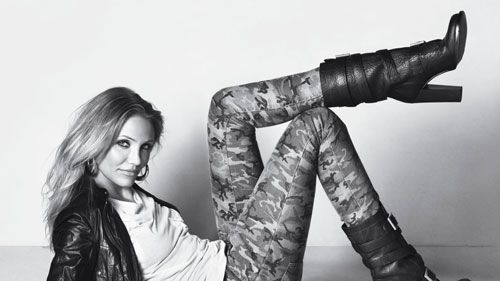
At a little before 9 a.m., the buzzer rings.
"Hi, it's Cameron," goes the chirpy, disembodied voice. Downstairs she's casually texting on my front step, 10 feet from the hybrid SUV waiting to whisk us to the airport. Easy, surfer-girl smile and we're off to the local Starbucks for fuel, where she'll bound into the place like a local.
There is something terribly wrong with Cameron Diaz. It's as though she missed the memo about being a global star—the highest-earning actress in Hollywood, thanks largely to some nimble voice work as the ogress Fiona in the Shrek franchise. At her level of influence and wealth, Diaz, the star of this month's My Sister's Keeper, really ought to be criminally precious, aloof, and entitled—not humping her own luggage (a buttery Prada satchel atop a rolly bag) through LaGuardia Airport, entourage-free, smiling and waving at the passengers crumpling slack-jawed at the sight of her. "I'm very good on my own," she'll tell me later. "I'm very adaptable and self-sufficient. I can pretty much take care of any situation."
"Hi, ladies!" Diaz sings out at some gobsmacked security women. She beams, cheekbones high and wide, blue-gray eyes filling with light. It's like watching the morning sun stroll past.
I can't get my head around it. Immediately recognizable, with a number of headline-worthy relationships behind her, she has done hard time as tabloid catnip. How can she be so Zen about the constant, panicky crush of attention?
"I just have a lot of friends," Diaz says with a pretty shrug. "That's how I think of it. It's nice to see people smile." Although she will tell me later, while sitting on the floor in a crowded waiting area, that losing your anonymity is a bit like a death—it's a loss that you mourn. "Every once in a while, you'll have those moments when people give you the stink eye," Diaz says. "And you're like, 'What the fuck is your problem? What, am I horrific-looking?' But really what they're thinking is, Am I seeing who I think I'm seeing? It's just a shock." She absentmindedly pulls and twists a long, golden lock of hair—a frequent tic. "I don't have any problem with being famous," Diaz says. "I've completely made peace with being recognizable and people wanting to peek into my life in some way."
PHOTO GALLERY: See Pics from Cameron's Road Trip
Stay In The Know
Get exclusive access to fashion and beauty trends, hot-off-the-press celebrity news, and more.
The focus of our trip: Diaz's rather pressing concern about the failing health of our planet—the dying oceans, the nefarious processed-food industry, the toxins tickling our nostrils with every breath we take. ("I wish I could be blissfully ignorant," Diaz sighs. "I wish I didn't know anything.") Eschewing hollow celebrity do-goodism—while refusing to attach her name or likeness to things like fragrances—she has taken it upon herself to make a low-budget, seat-of-the-pants documentary about our relationship to the planet, schlepping to some not-so-hot spots across the country to talk with local people about their environmental woes. Airport Marriott, here we come!
Inspired by the annual TED conference that she's attended—a kind of smarty-pants consortium dedicated to the spread of innovative ideas put forth by speakers like Bono, Al Gore, Jane Goodall, and Samantha Power—Diaz felt the urge to start a far-reaching conversation about the environment. "I was like, I'm going to get a camera, and I'm going to mobile-home it across the country, and I'm just going to find out what people are thinking. What would it take for the common person to become engaged?"—in the catastrophe that is the state of our natural resources. Most of all, she wants to help raise consciousness. "There's a lot of great minds out there who are thinking about this," she says, "who are coming up with solutions. Not to crash anybody's party, but to actually make the party better." She laughs. "Really, that's what it's about—that's my participation in it."
Once in Houston, we hook up with the 11-person film crew that's been assembled, which includes the genial, quirky director Jesse Dylan, son of Bob, who shot will.I.am's "Yes We Can" video during election season. After enthusiastic greetings, we freshen up for no more than 30 minutes at the Marriott before descending, commando-style, on some environmentally stressed nook of the city so that a miked, un-beautified, unscripted Diaz and the boom-and-camera-wielding crew can find some strangers to grill about the environment.
Our first location: a poison-belching oil refinery. Hard by the smokestacks, Diaz gamely pops out of a cobalt-blue Kia to commune with some rawboned workers, at the end of their shifts, buying booze at a neighboring liquor store and puffing on cigarettes; she's barely finished asking a woman about the local water supply when a security truck rolls past, then stops and idles. It's a sinister, Silkwood-type scene. The jig is up—the equipment plus Diaz are quickly pulled into vehicles, and we speed off. "We're being tailed," someone says—the security truck bearing down, then turning back once we are beyond the refinery's reach.
Our next stop is a parched playing field near a school that sits in the shadow of the refinery, where the climbing equipment includes old truck tires protruding from the ground. And it is here that I get deeper insight into what's driving Diaz to pursue this cause.
"This smell wafting over?" she says, taking leggy denim strides across the field while picking up the acrid stink. "This is my childhood."
Diaz grew up in Long Beach, CA, in a neighborhood similarly dominated by a behemoth polluter. "I could see the flame from the refinery burning from my bedroom window," she says. "I remember my dad dusting all the time from all the dirt that came in."
The freeway ran past their house. "The 18-wheelers would drive by, and we loved it because we'd . . ."—she makes a playful tugging motion with her arm—"and the truck drivers would blow their horns." What Diaz didn't realize until later was that the trucks were carrying toxic waste from the refinery and dumping it in pools at the end of her block. As a kid, she suffered from asthma, as well as that ongoing burning, itchy sensation in the eyes and throat that she's starting to feel now.
Once she has eased people past the shock of encountering her ("Hi, I'm Cameron!"), she drops into a low, wide-leg stance so she's eye-to-eye with her less willowy interviewees—high-school girls, the Latino father of a young boy, a science teacher—then launches into a series of questions while the cameras roll: Do you know where your food, your water come from? Do you worry about the environment? What would it take for you to become more involved? And while people do seem to care, they also indicate a feeling of powerlessness. What, after all, can one person do? Then there is the problem of illegal immigrants—and there are many in this area—being decidedly disinclined to draw attention to themselves by registering complaints about things like air quality.
But the showstopper is a woman we meet a bit later who lives in a little house in full view of the refinery, who tells Diaz about the morning a sulfur-holding tank at the plant exploded, the still-mysterious condition that led to her young son's open-heart surgery, the spike in depression and suicides in the neighborhood, the six-figure payoff one family received when their son was diagnosed with leukemia . . . And yet, with unmistakable pride, the woman turns around and lifts her shirt to show us the name of the neighborhood tattooed in large black Gothic letters across the small of her back. Because this, despite everything, is home.
"I want to leave you with this thought," Diaz says to the woman. "After all you've told me . . . what would it take for you to do something to change your environment?" The woman, speechless, looks like she's going to cry.
"I'm sad," Diaz says later, in the car on the way to a Mexican joint for dinner. "It's just sad." She drains a plastic water bottle and tosses it on the floor of the car. "And I'm unhappy about the waste I just produced." Diaz and Dylan, sitting next to her in the backseat, conclude that we as a people are summarily, environmentally "fucked." In fact, that quickly becomes the leitmotif of the trip, and it cracks them up every time. Diaz, out of the blue: "You know what we are?" Dylan: "Let me guess—fucked?"
Check out this list of Cameron's Favorite Sustainable Websites
But nothing keeps Diaz down for long; at 36, she has a goosey energy that seems almost teenagerish—hormonal. One morning when we'd set out at a cruel 7:30, I was fighting off drowsiness in the front seat while a slap-happy Diaz twisted and bounced in the back, loudly singing Madonna's "Into the Groove"—without benefit of iPod or earbuds. She then claimed to need coffee, holding up an empty 20-ounce thermos. "I found this in Japan," she said. "When I did, I was like . . ." And here Diaz started cuddling and stroking and kissing the thermos effusively.
Sipping a virgin margarita at the Mexican restaurant now, Diaz announces, "Shit just finds my face—it's crazy." She's referring to the fact that she finally had her nose fixed, after breaking it four times—most recently with a surfboard, and before that with her own knee. More radical forms of surgery are likely out of the question for her; Diaz is philosophical about what God gave her. "I'd love a bigger butt, more meat on my bones," she says. "I'd love to be more voluptuous. It's just not my body type."
Defiantly down-to-earth, Diaz holds on hard to the homegrown qualities that have made her such an accessible presence on-screen. She's the kind of girl who whips out a Sephora makeup bag and touches up her face mid-conversation; the type to chat loudly in the next bathroom stall and emerge with her pants undone, zippering them up in front of the mirror while she gabs. (And yet, she argues for a degree of cinematic mystique. Of the wild children currently dominating the tabloids, she says in the manner of a wise elder, "I like sexy girls; I like slutty girls. But sometimes I go"—she mimes a yawn—"if that's all there is.")
"I went to school with 3500 kids from all walks of life," Diaz tells me. "We had kids who were Samoan, with sarongs and tattoos and gray hair at 13. We had guys with turbans on their heads. Being Hispanic"—her father was Cuban-American—"I was part of the ethnic population, but I also had blonde hair and blue eyes. I was friends with everybody. That gave me the skills I needed to travel and be in the world."
Unlike the Mileys and the Britneys who had handlers before they'd even had their first kiss, Diaz endured some lean, obscure years, mostly modeling, which she values. "I had the good fortune of becoming famous once I had already lived a life, traveled a lot, stood in line, had to ask people to help me, had to find a way to make something work, pay the rent, scrape by," she says. "I used to do $4 a day with a girlfriend. We would get two tacos and split a Coke."
Indeed, the only thing to really break her stride has been the unexpected death of her father at 58, from pneumonia, a year ago last April. By all accounts, it put Diaz to her knees. "It's the most profound thing—singularly the most profound thing that has ever happened in my life," she says. "It's like you're standing there with somebody next to you, and all of a sudden there's this huge hole where they were. It's just a massive hole—you can't even see the bottom." But, devastating as the loss was for her, Diaz emphatically refutes the reports that claimed she'd had a breakdown at the time and was hospitalized. A shrug. "People want you to be weak."
If anything, Diaz says, the tragedy focused her. "When you lose a parent, it either derails you or it sobers you up. It either blows you off course or sets you on course. For me, I became very introspective. You go inside and you look at things very intensely." Hence, this passion for hunkering down to what's important, and tackling something much bigger than she is.
Before flying to Cleveland, we go to a park and meet a vibrant cross section of humanity: the businessman in upscale running gear who tells us that his contribution to the environment includes putting "environmentally friendly lightbulbs in my house" (environmentally friendly in finger quotes); the tie-dye-wearing Texas hipster-savant who says with a mordant laugh, "My father and I were never really close—but the one thing we had was, he taught me a love of nature." Then Diaz approaches a gentle soul in a windbreaker and black pants, who spells out his great love for this park. "Sometimes if it rains, it's hard to sleep; sometimes I go a little hungry. But I look forward to every day." Cameron's half-mast courtesan eyes fill with tears. At last—someone more in tune with the environment than we ever could have imagined—someone who basically lives in the park. None of us had realized the man was homeless. "He shifted something in me," Diaz says afterward.
This is not an easy gig for a glittering star who will never want for much of anything. People instantly ascribe cynical motives. What's an overprivileged limelight fixture like Cameron Diaz doing, telling us what's important?
She gets that. Luckily, Diaz is clever enough to know the precise extent to which she is one of us, where her surreal otherness takes over, and the good that it can do.
"The planet needs a publicist," she told me on the first day of our trip. "I had this cartoon in my head a couple of years ago when Paris Hilton was going to jail and Britney Spears was falling apart. There's a woman at a desk talking to planet Earth, and she's like, 'I'm going to make you a star!' And it says, 'But I'm a planet.' And she's like, 'No, I can tell, you're going to be bigger than Paris and Britney. When I'm done with you, everyone's going to know who you are!'" She laughs.
"It's the planet, you know what I mean? She should be the one—she should be a star. How do we make this little planet of ours a big star? I want everybody to know who she is."
-
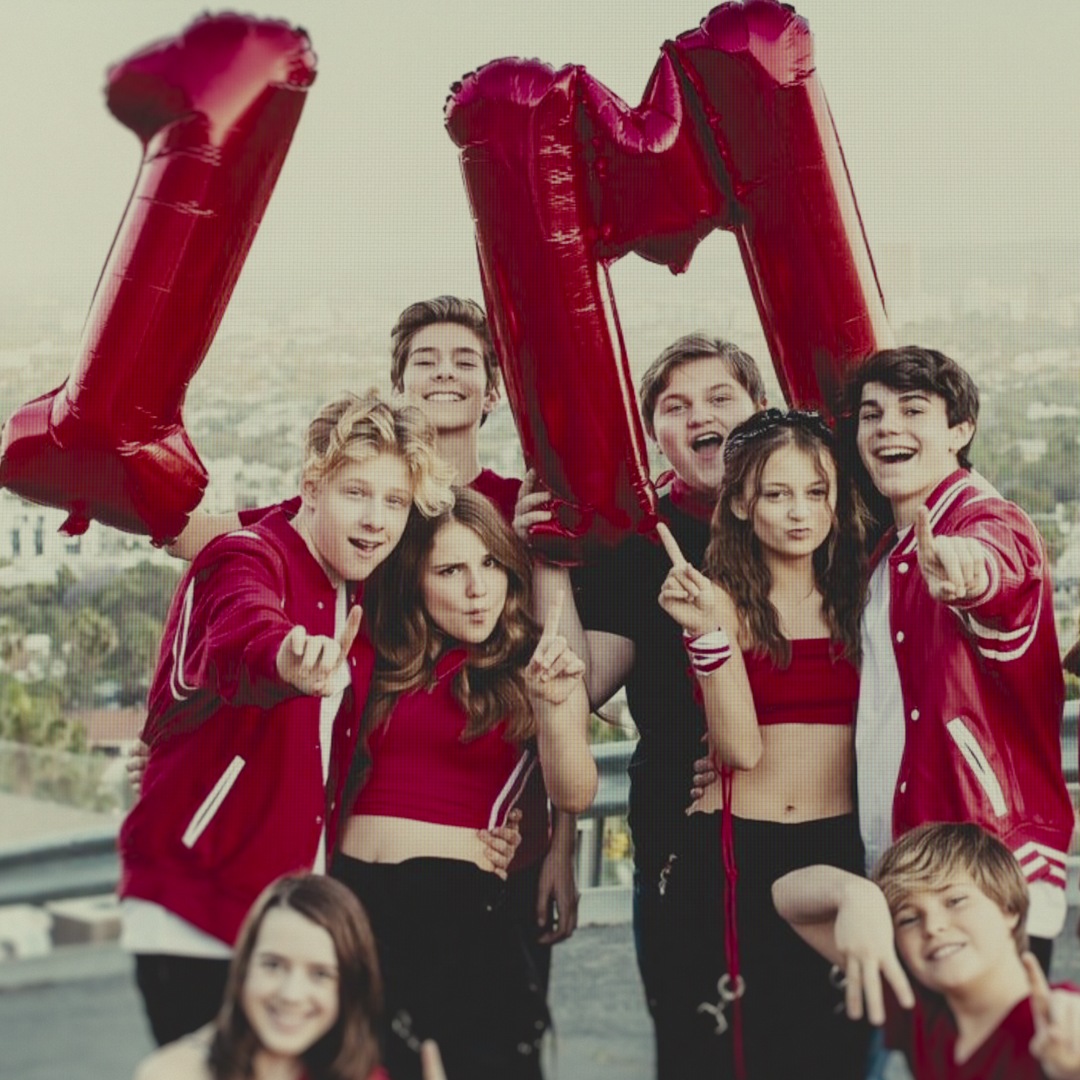 'Bad Influence' Charts the Demise of a Popular Social Media Squad—Here's Where the Kidfluencers Are Now
'Bad Influence' Charts the Demise of a Popular Social Media Squad—Here's Where the Kidfluencers Are NowThe names in the Netflix docuseries have fallen out of touch with subject Piper Rockelle.
By Quinci LeGardye Published
-
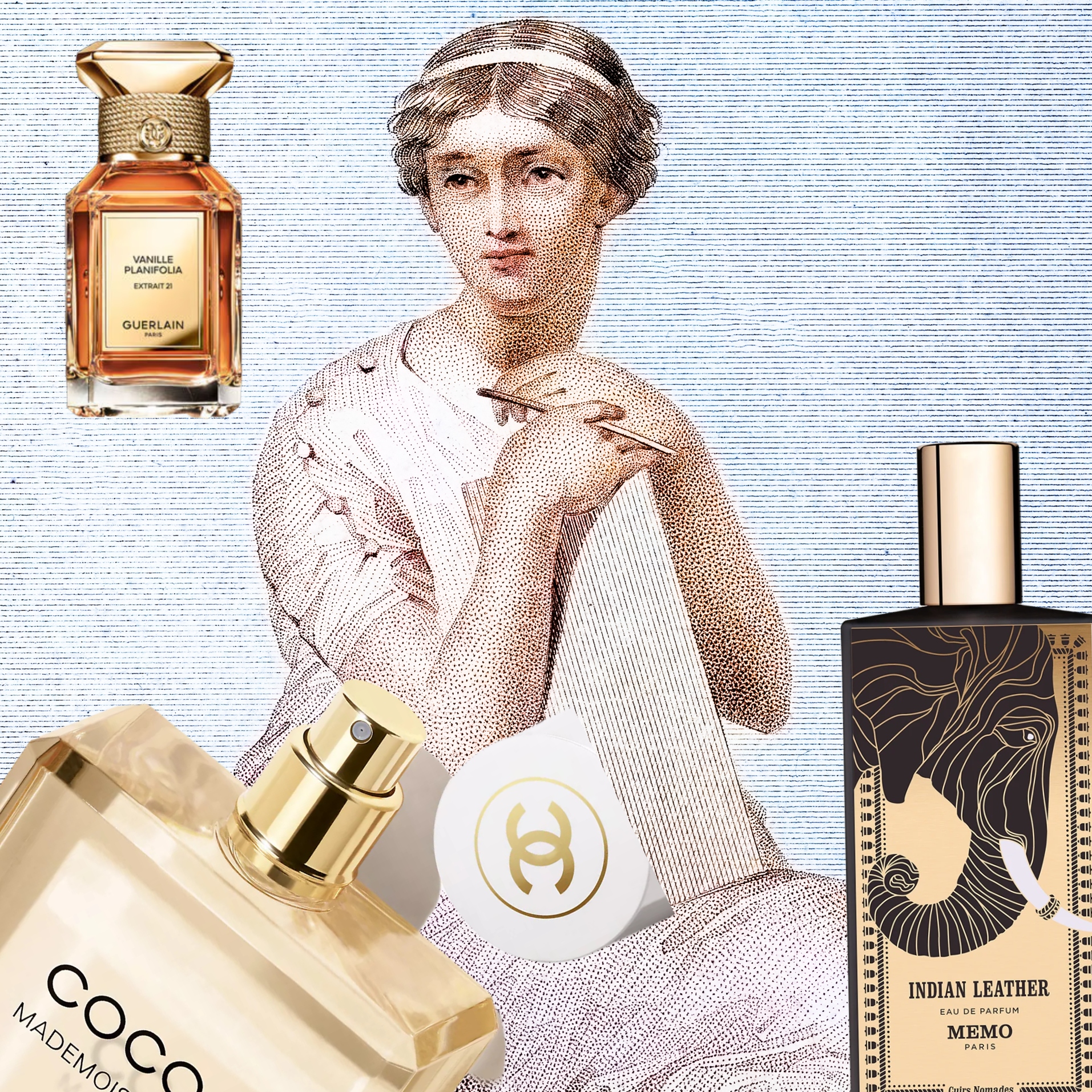 What's Your Olfactory Personality?
What's Your Olfactory Personality?Curating your scent style infuses individualism into a perfume wardrobe.
By Samantha Holender Published
-
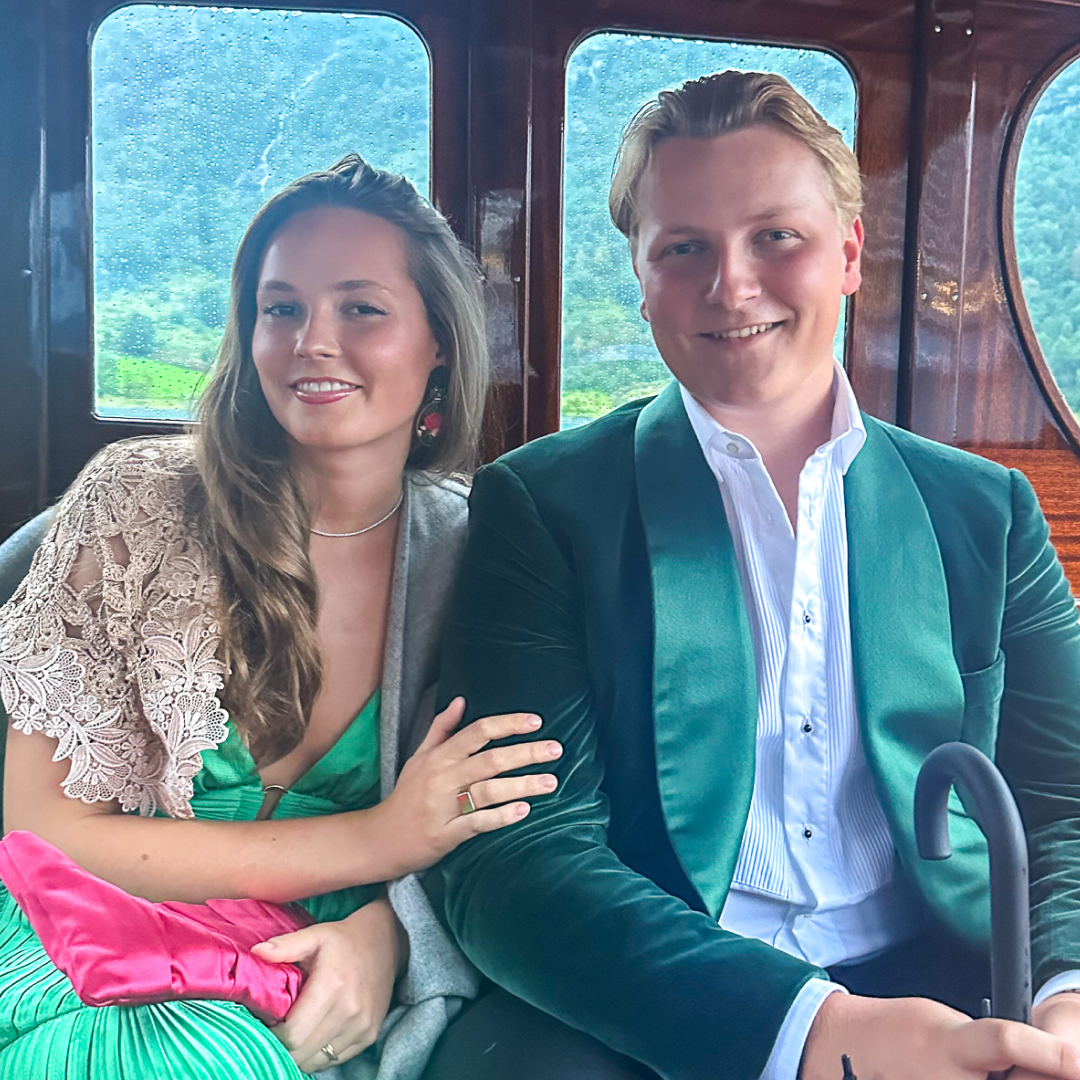 The Future Queen of Norway Trades Camo Fatigues For a 125-Year-Old Tiara and Her Mom's Old Evening Gown
The Future Queen of Norway Trades Camo Fatigues For a 125-Year-Old Tiara and Her Mom's Old Evening GownSomething old, something new, something borrowed, something blue.
By Kristin Contino Published
-
 Eva Mendes and Ryan Gosling Introduce the "Newest Member" of Their Family
Eva Mendes and Ryan Gosling Introduce the "Newest Member" of Their Family"I'm crazy about her and excited to share life."
By Amy Mackelden Published
-
 Jennifer Garner Is Reportedly Ready to Cut Ties With Jennifer Lopez, Unless Their Kids Are Involved
Jennifer Garner Is Reportedly Ready to Cut Ties With Jennifer Lopez, Unless Their Kids Are Involved"Her friends feel she shouldn't have allowed herself to get so involved."
By Amy Mackelden Published
-
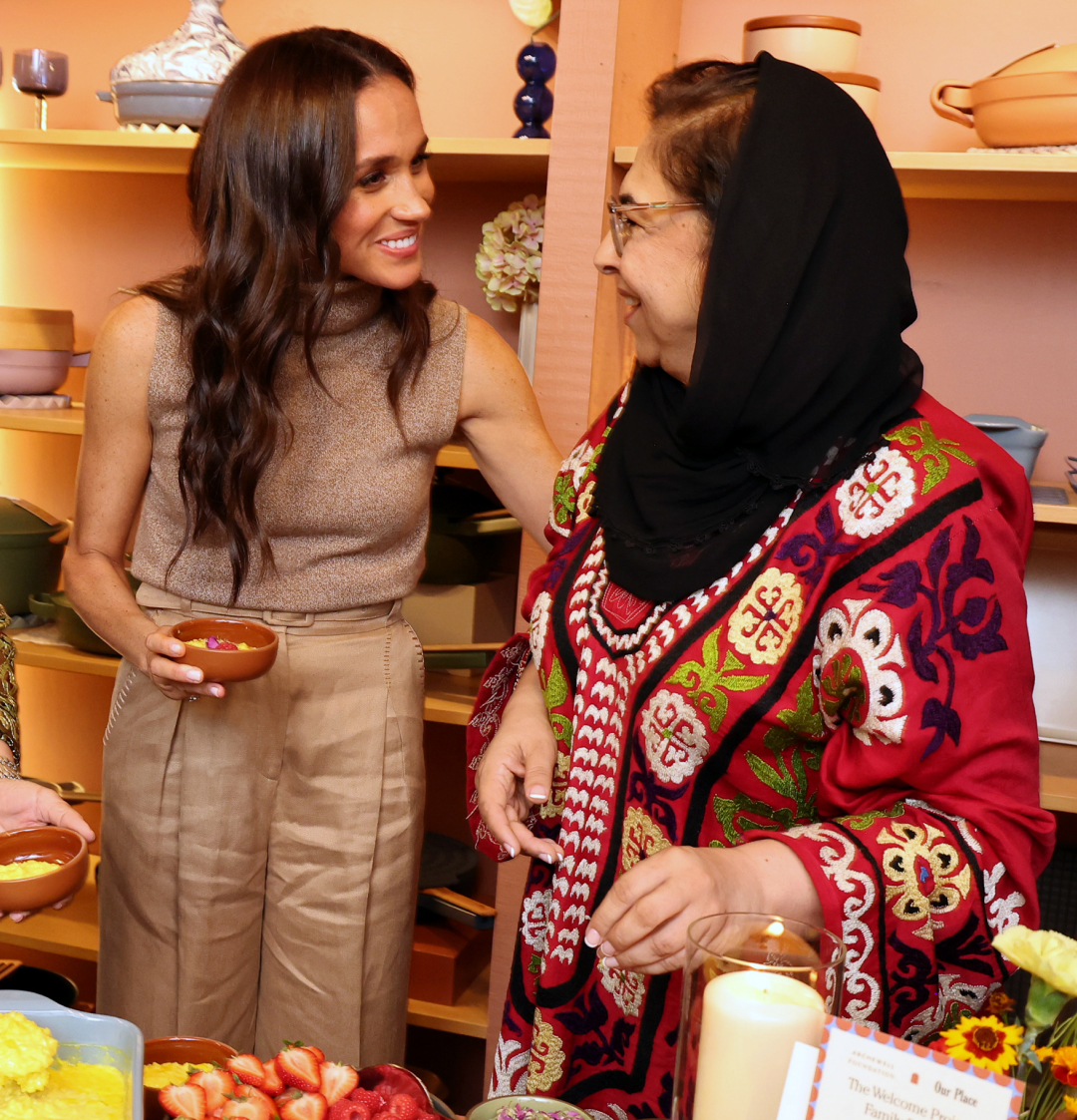 Exclusive: Meghan Markle Hosts Heartfelt Holiday Dinner for Afghan Women Starting New Lives in America
Exclusive: Meghan Markle Hosts Heartfelt Holiday Dinner for Afghan Women Starting New Lives in AmericaThe Duchess of Sussex sat down with ‘Marie Claire’ to discuss the Archewell Foundation’s Welcome Project and her own holiday traditions with Prince Harry, Prince Archie and Princess Lilibet.
By Kristin Contino Published
-
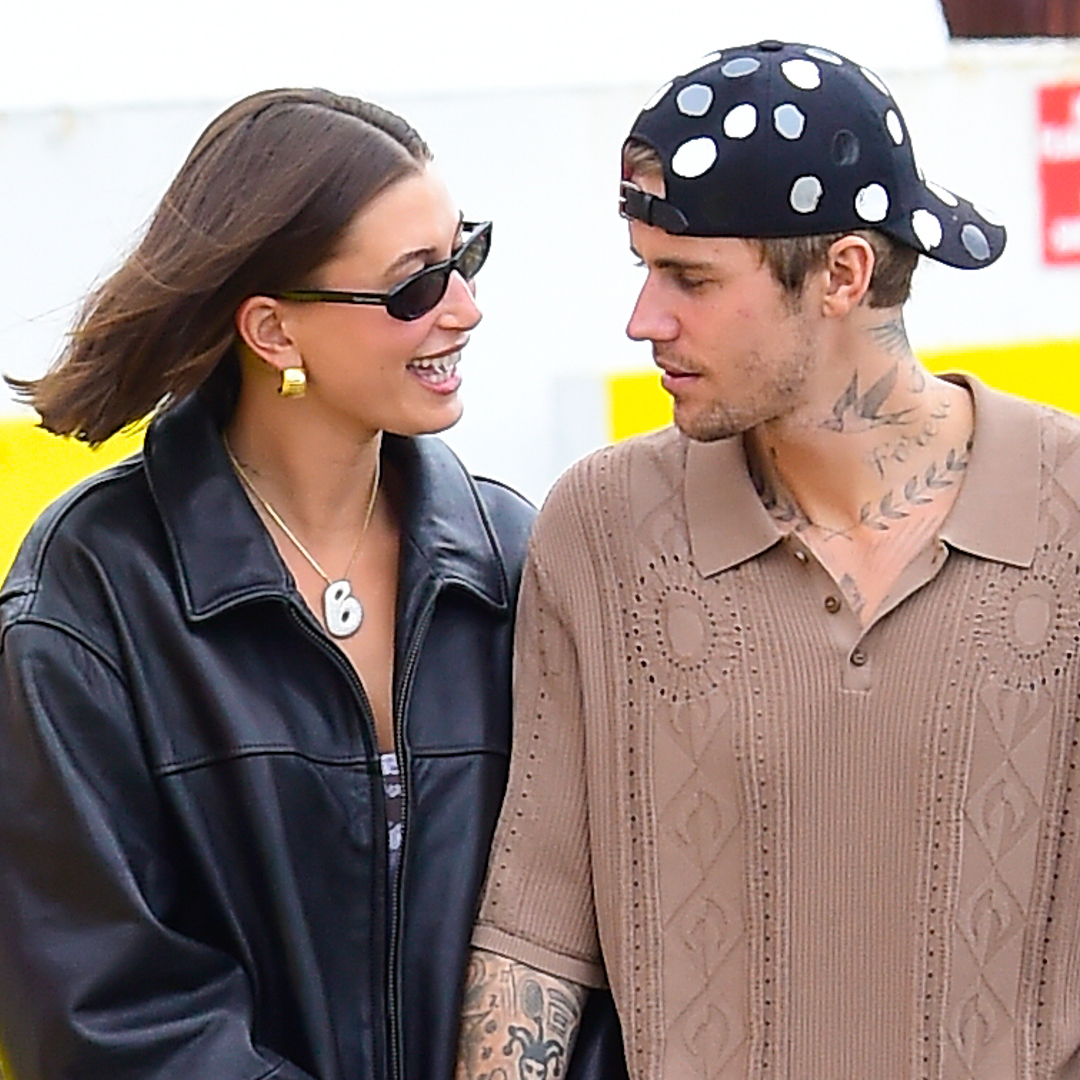 Hailey Bieber Shares Her First Photo of Baby Son Jack Blues Since Giving Birth—See the Sweet Shot
Hailey Bieber Shares Her First Photo of Baby Son Jack Blues Since Giving Birth—See the Sweet ShotSo freaking cute.
By Quinci LeGardye Published
-
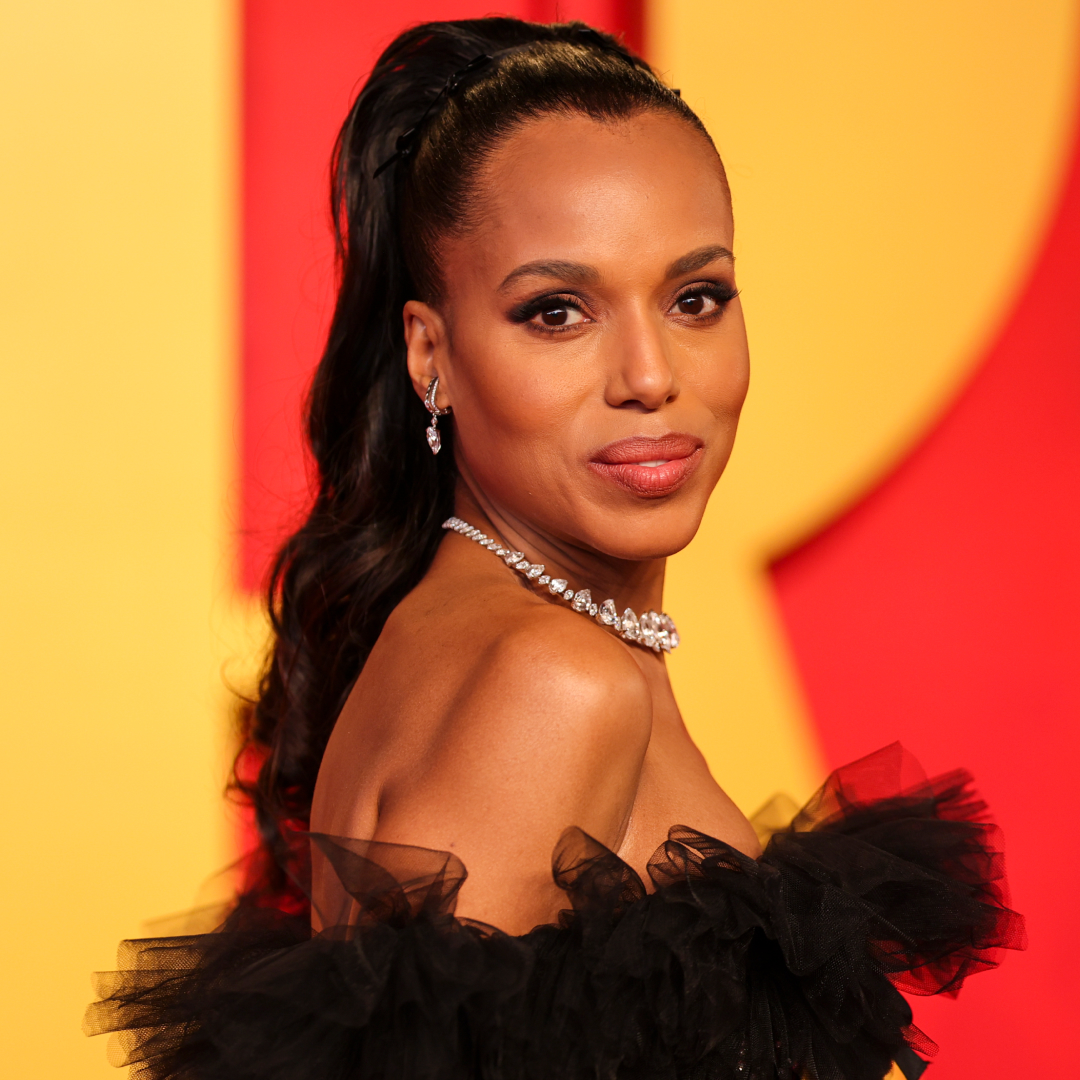 Actors Who Are Nothing Like Their Most Iconic Characters
Actors Who Are Nothing Like Their Most Iconic CharactersTalk about awards-worthy, transformative performances.
By Katherine J. Igoe Published
-
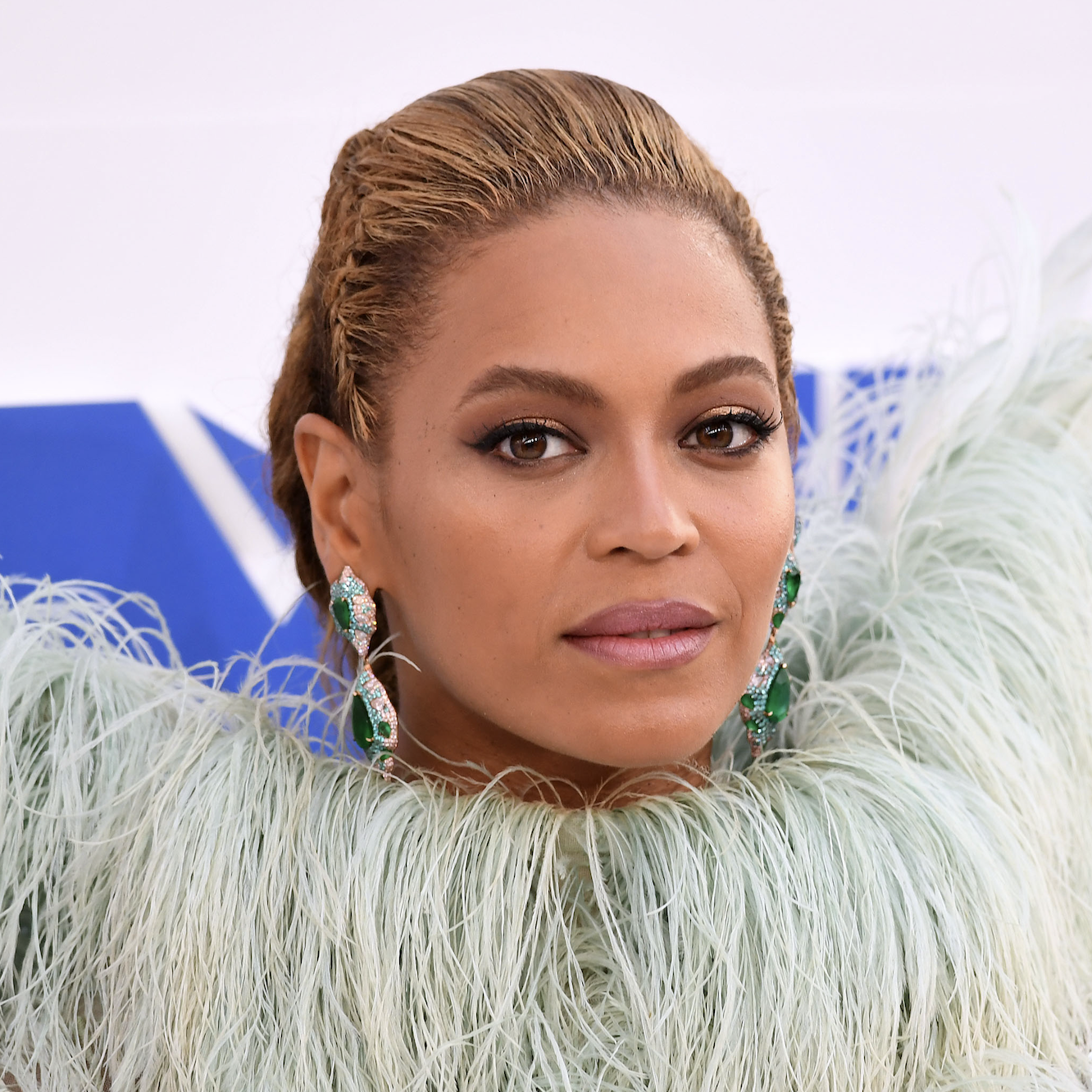 The Question on Everyone's Lips: Did Beyoncé Skip the 2024 MTV VMAs?
The Question on Everyone's Lips: Did Beyoncé Skip the 2024 MTV VMAs?It's been a few years since she last graced the carpet with her presence.
By Kelsey Stiegman Published
-
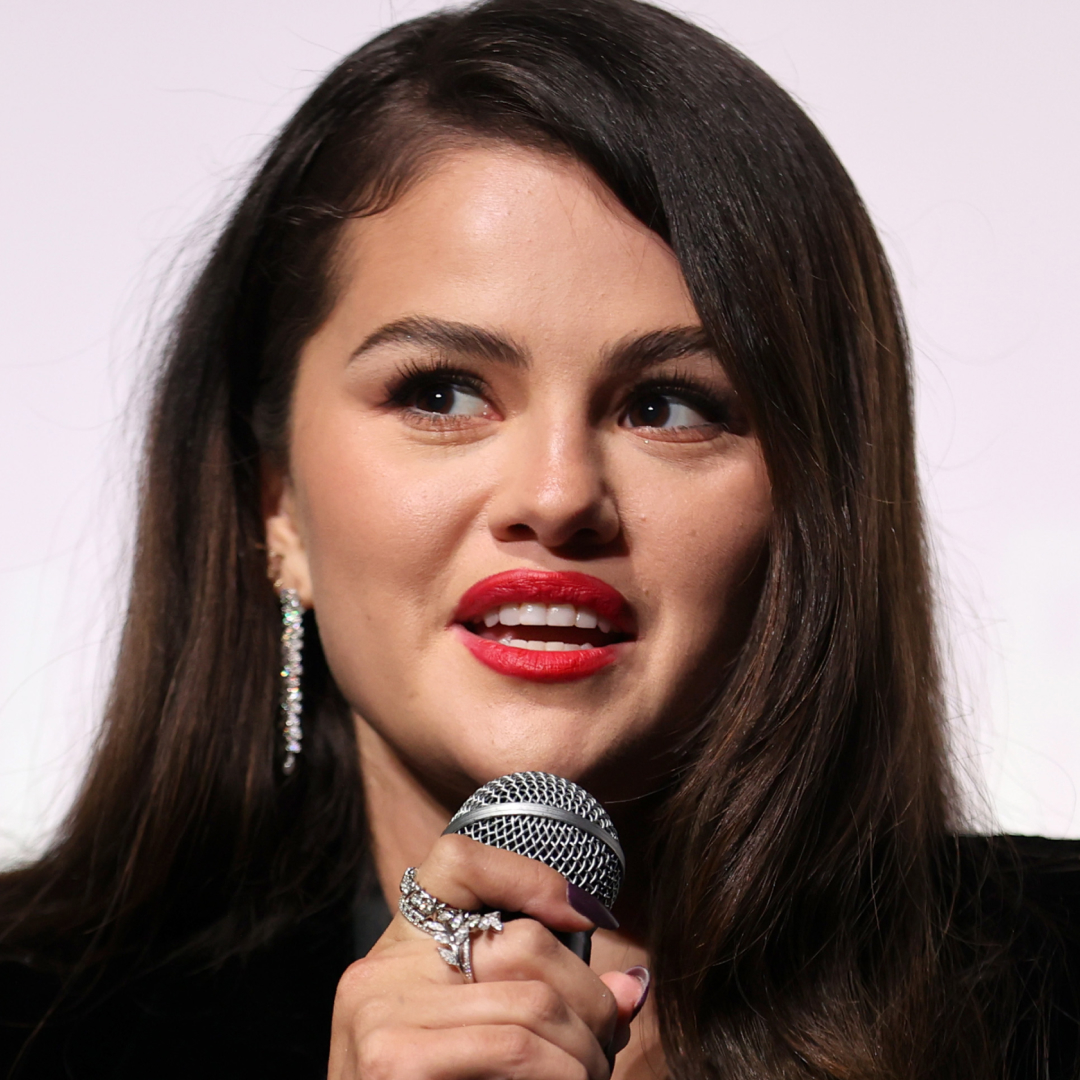 Why Isn't Selena Gomez at the 2024 VMAs?
Why Isn't Selena Gomez at the 2024 VMAs?Her absence became even more noticeable after her bestie Taylor Swift showed up.
By Hanna Lustig Published
-
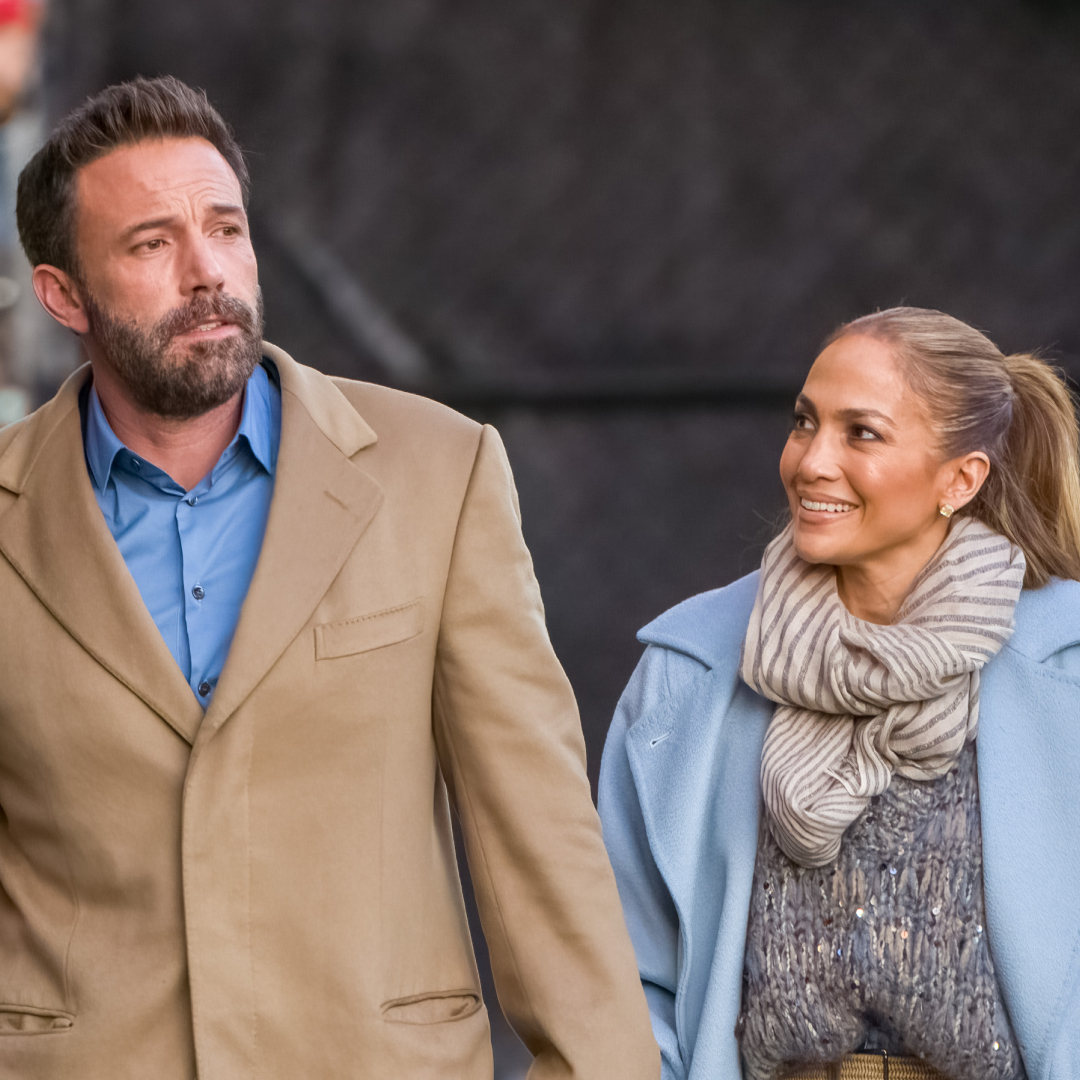 Jennifer Lopez Thought Ben Affleck Was a "Changed Man" But Being Married to Him Was "Impossible"
Jennifer Lopez Thought Ben Affleck Was a "Changed Man" But Being Married to Him Was "Impossible""Friends think he is selfish, sullen, impossible to please most of the time and negative."
By Amy Mackelden Published